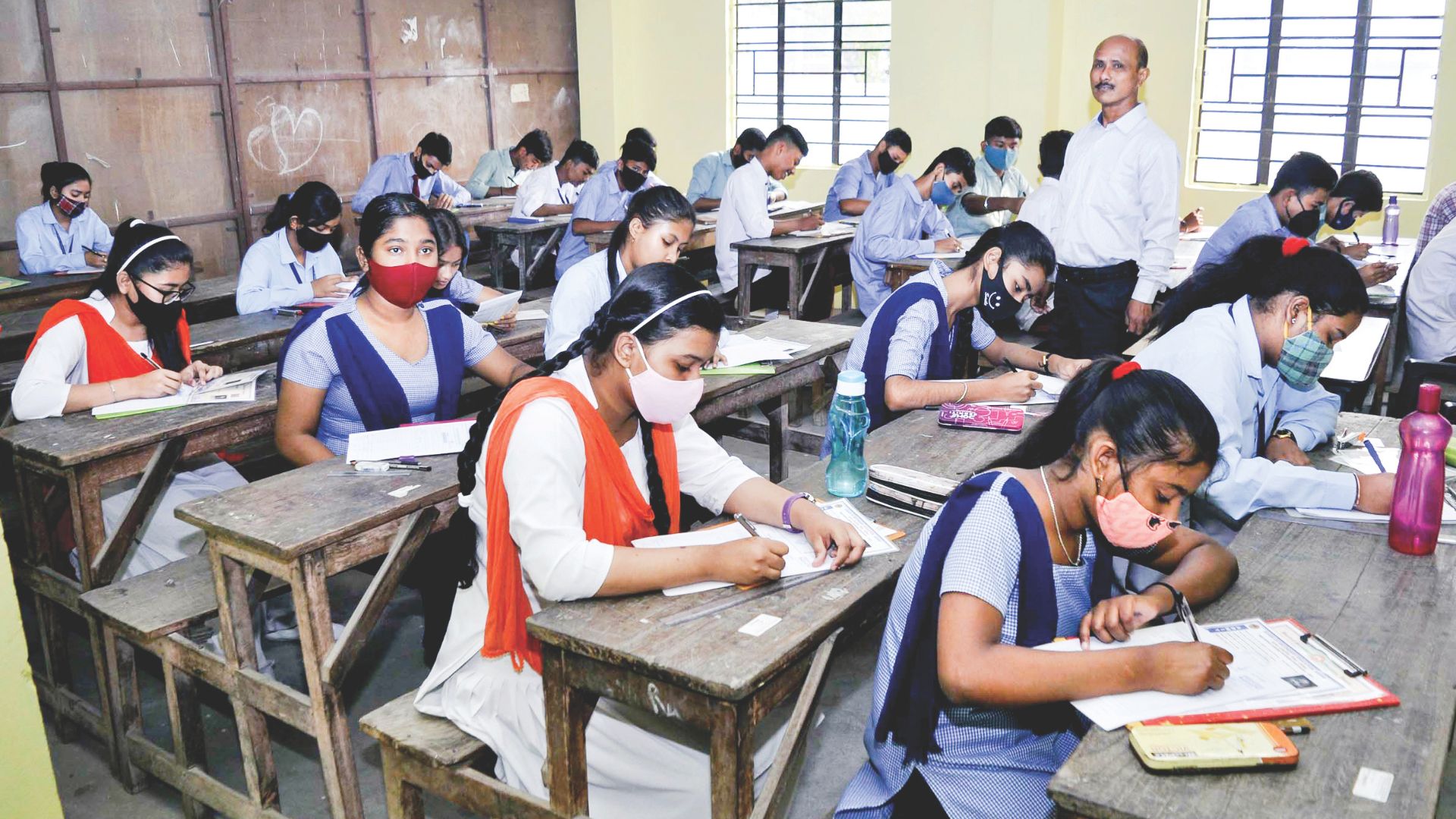
Precocious Puberty:
Puberty is a crucial time in an individual’s life. It is the time when a boy or a girl begins on their journey towards sexual maturity i.e., being adult. The average age for puberty for boys is around 11-12 years (ranging from ages 9 to 14) and for girls, the sexual characteristics start developing at around 10-11 years of age (this can range between 7-8 to 13 years).
Hypothalamus is the part of the brain responsible for releasing chemicals(hormones) that beget the pituitary gland to release hormones called gonadotropins. Gonadotropins, in turn, stimulate the growth of the coitus glands (also called gonads), which in boys are the testicles, and in girls are the ovaries. In boys, the testicles release testosterone; in girls, the ovaries release estrogen. Puberty generally starts between the periods of 8 and 13 in girls and 9 and 14 in boys.
Precocious puberty refers to the condition in which secondary sex characteristics start appearing in girls younger than 7-8 years and in boys younger than 9 years of age. It is a very rare condition that can be seen in 1 out of 5500 individuals. For most of the children with precocious puberty have just a variation from natural puberty and no other serious medical abnormality is present. Precocious puberty (and late puberty as well) is seen in boys or girls who have/ had some family members gone/ going through untimely puberty. On the other hand, for boys/girls who are younger than 6-7 years of age, precocious puberty can prove to be a serious cause to be concerned about.
Causes of Precocious Puberty:
Possible causesof early puberty include the following:
• Tumors i.e., unwanted growths in the pituitary or adrenal glands
• Ovarian tumors in girls
• Oesticular tumors in boys
• McCune- Albright pattern, an uncommon inheritable complaint that can beget problems with hormone product, skin color, and bone health
Types of Precocious Puberty
Precocious puberty can be divided into two types. Even though the causes of the types differ but the changes that they trigger are mostly similar. The types can be divided into the following:
Central Precocious Puberty: Central precocious Puberty refers to the condition in which your brain secretes gonadotropins at an oddly young age.
Peripheral Precocious Puberty: This kind of Precocious puberty is seen less commonly. Unlike the Central precocious puberty, it is not stimulated due to the untimely (too soon) release of the gonadotropins by the the Pituitary
Symptoms:
Signs of precocious puberty in children include:
• Development of underarm and pubic hair
• Acne
• Spurt of rapid growth
• Adult body odor
Precocious Puberty Risk Factors:
There have been a few things that have been found to increase the risk of early puberty:
Gender: Boys are 10 times less likely to be affected by central precocious puberty
Race: African – American girls mostly start their puberty a year earlier than white girls. The reason for this is still not known by the researchers.
Genetics: Many of the children have/ had a parent or sibling that has/ is suffering from this same problem. Genetic mutations can also lead to trigger the release of sex hormones that can then lead to early puberty.
Obesity: Various studies have linked obesity with an increased risk of precocious puberty. The direct relationship is still not known but in girls, this is more prevalent than boys.
Diagnosing Precocious Puberty:
Firstly, your child’s as well as your family medical history would be looked at by your general physician. After this, physical examination is to be carried out as it is a crucial step for a proper diagnosis. X-ray can then be prescribed by your physician in order todetermine the physiological “age” of your child’s bones. If there are indications of the bones being growing at afaster rate will confirm the diagnosis of precocious puberty as this fast rate of bone growth can be due to untimely or youthful puberty.
Blood test: It can be used to check the hormonal levels like progesterone in girls and testosterone ion boys in your child’s body. If the hormones are in higher levels, this confirms our diagnosis.
Gn-RH (Gonadotropin Releasing Hormone) Stimulation Test: It is generally accompanied by a blood test. This test includes stimulation using Gn-RH. The Gn-RH will cause increased levels of other hormones in case of children suffering from Central Precocious Puberty. On the other hand, the hormonal levels will remain the same for children suffering from Peripheral Precocious Puberty.
MRI: Magnetic Resonance Imaging can be used to help in exposing brain problems or abnormalities related to the pituitary gland like tumors.
Pelvic Ultrasound: Pelvic Ultrasound can also be used to know if there are any kind of cysts or tumors present in the ovaries (in girls)/ testicles (in boys), etc. Such growths cause early puberty in many girls.
Precocious Puberty Treatment:
The treatment for precocious puberty usually depends on the following factors:
• Age of the child
• Severity of the condition
• The child’s tolerance for certain medications, procedures, or therapies, etc.
• Your expectations for the condition’s course
• Your preferences.
The aim for treatment is to cease, inhibit and to cause reversal of the untimely puberty symptoms’ onset. Treatment greatly depends on the kind of early puberty the child is suffering from and the underlying factors that may have caused this condition.
The different treatment options available forcentral precocious treatments include the following:
Injections: These GnRH injections are given into the muscles or under the skin either daily or monthly.
Implants: These are- a little over an inch- sized tiny tubes that get placed under the skin generally in the upper arm. These implants keep releasing the medicines in the body gradually.
Nasal Sprays: These sprays are used daily by the children
Precocious Puberty Prevention:
Tips to Prevent Early Puberty
Even though, there are many theories for precocious puberty, one can prevent it by following the tips given below:
• Reduce obesity.
• Encourage your girl child to join a school or after school sport, dance class, or any other kind of physical activity which is enjoyable for her.
• Reduce exposure to TV and gadgets.
• Teach simple exercise and relaxation skills to the child
Preferred Diet to Prevent Early Puberty in Young Girls
Nutrition is one of the most important factors affecting pubertal development. In order to prevent early puberty, you can include the following food items in your child’s diet plan.
• Vegetables: e.g., cabbage, spinach, carrots, beetroot, asparagus, broccoli, parsley, etc
• Fruits. e.g., avocado, banana, orange, apples, strawberry, blueberry, raspberry, etc
• Grains e.g., oats, whole wheat, quinoa, millets, etc
• Dry fruits, nuts, and seeds e.g., almonds, brazil nuts, cashew nuts, hazelnuts, macadamias, pecans, pine nuts, pistachios, and walnuts. etc
• Dairy products e.g., milk, yogurt, low-fat cheese, etc
• Fluids e.g., coconut water, fresh lime water, clear soups, herbal Infusions, and lots of natural water.
Food Items to Avoid
• Eliminate or minimize packed or processed foods from your child’s diet plan. These are calorie-dense and nutrient-poor. They promote obesity and other diseases.
• Stop soda and aerated drinks completely.
• Junk food like burger, pizza, samosa, vada pav, should be avoided.
• Minimize the caffeine intake
Conclusion:
Precocious puberty is not generally a serious condition but if it is caused due to any cyst or tumor, it can prove to be one. And hence, you should have an experienced doctor by your side who can guide you properly, someone who knows about this condition inside out. Your physician should be someone whom you can be open with and, can share and discuss details of your condition. This is also the reason why most girls suffering from early puberty mostly like to have a female physician so that they don’t feel embarrassed while talking to them. If you or someone you know is going through precocious puberty know that there are medicines and other treatment options available that can be really helpful.
The author is MD (AIIMS) COAG (Harvard)
FAQs
Is it true that the incidence of precocious puberty is increasing lately?
Yes, the occurrence of precocious puberty is increasing nowadays. This can be due to several reasons like hormones in the food, pollutants in the water containing food-mimicking pollutants and increased social exposure like sex in the mass media.
When should the parents see a healthcare provider?
Parents should take their child to a healthcare provider if they notice signs of precocious puberty or if the child complains of things like strange body odor, aggression , or early development of sexual and physical characteristics that can cause social problems for the child in school and friend circle.
Does early puberty affect height?
Adult height can be affected by Central precocious puberty. Children with CPP can generally be taller than their peers due to the early growth spurt. This is due to the reason that these children’s bones mature faster than normal. Such children stop growing earlier too. If such children are ignored and not provided with needed treatment, they may not reach their potential adult height.
Can early puberty affect emotional development?
Childs feel emotional change as well as physical ones when they start puberty. If a child starts puberty too soon, there is a chance that they are not ready for such changes. Such children feel very self-conscious or even embarrassed because peers or friends around them are not experiencing such changes. Psychological effects of early puberty can sometimes be serious as the child’s self-esteem can be affected and can even cause anxiety or depression.















